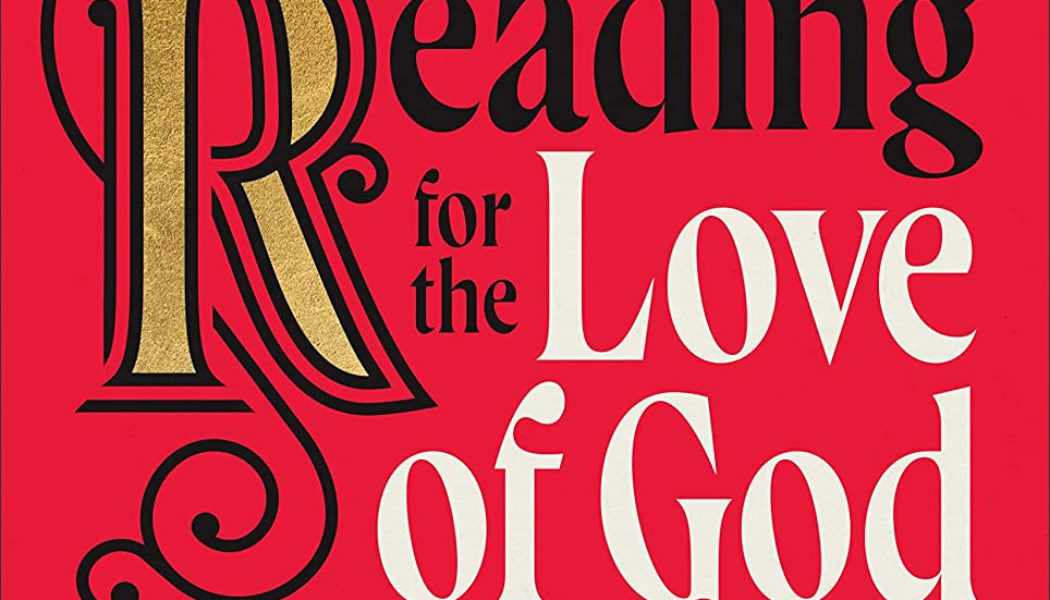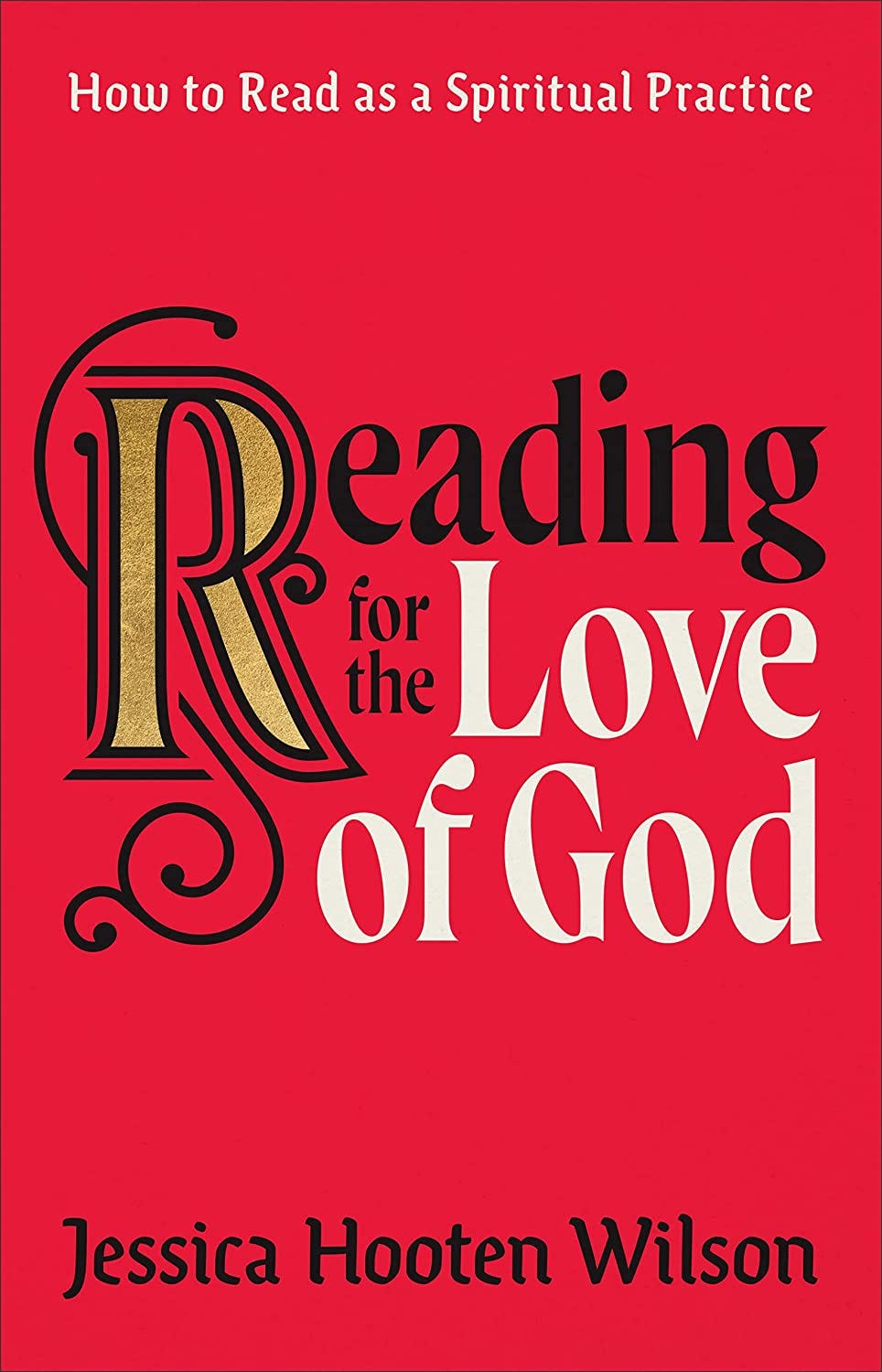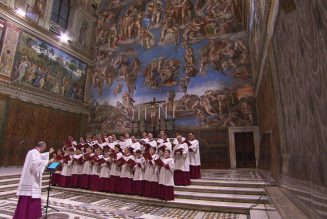Over the years, I have heard Jessica Hooten Wilson speak at numerous classical education conferences and have always appreciated the depth of knowledge she displays with both passion and relatability. Through our mutual attendance at those conferences, she and I have struck up a collegial friendship which has been to my benefit both professionally and personally. I’ve come to see that Dr. Wilson’s perspective is uniquely informed by her recognition that the Great Conversation is held not only around seminar tables in the hallowed halls of higher learning but also in homes around breakfast tables, and in faculty lounges at K-12 schools. Dr. Wilson is able to make any topic accessible to any individual, regardless of academic achievement or educational status. Her ability to connect with diverse audiences is just one of the qualities that speaks to her giftedness as an educator and author.
When I was asked to review her forthcoming book, Reading for the Love of God: How to Read as Spiritual Practice (Baker Publishing Group), I expected to hear her familiar voice as I turned the pages—and I was not disappointed. For a novice reader, new to the notion that reading is a spiritual practice which can and does shape the formation of our souls, Wilson’s book provides enough clarity and context to establish a gentle learning curve. For a more experienced reader, she provides a number of fresh perspectives and insightful approaches to this issue, advancing the conversation another step forward.
Additionally, and more specifically, her book appeals to an ecumenical audience. Aside from one small jab at Martin Luther and a generalization about evangelicals’ disdain for Harry Potter, Reading for the Love of God anchors its arguments in orthodox Christian doctrine and presents a solid case for (a) the necessity of reading, (b) an understanding that reading contributes to the formation of one’s soul, (c) an awareness that reading the Bible influences our reading of other literature and vice versa, and (d) an understanding that there are different ways to practice reading as a method of spiritual formation. With each organizing principle, Wilson serves the universal church by first introducing and describing the fundamentals, and then exploring the opportunities that can take the reader further up and further in.
One of the real treasures of Reading for the Love of God are the four vignettes, or “Bookmarks,” Wilson provides featuring Augustine of Hippo, Julian of Norwich, Frederick Douglass, and Dorothy Sayers. Part biography and part demonstration, these Bookmarks illustrate Wilson’s thesis by following the classical model of theory, imitation, and practice. Wilson uses these Bookmarks to illuminate her primary arguments (theory) and demonstrate (imitate) a principle argument being made about the nature, benefit, or end of reading, thereby enabling readers to practice the principles on their own.
In “Reading like Augustine of Hippo,” for example, Wilson describes the experience of the great Father of the Church as he journeys from novice to spiritual reader. “Augustine,” she writes, “comes to learn spiritual reading from St. Ambrose, who oversaw his baptism in Milan. … Ambrose teaches Augustine that God, as spirit, intends his words to be interpreted literally and spiritually, the latter as the higher meaning of the text” (34–35). Wilson then fleshes out this process to demonstrate how learning to read the Bible as a spiritual text should influence how we read other literature. “Augustine teaches us this twofold method of reading … that can apply well to reading literature. Through fantastic stories, literature reveals spiritual reality, that we may imagine our world as enchanted with this second layer of meaning” (41). Just as we would expect from a thoughtful scholar of faith, Wilson also suggests appropriate theological guardrails when she writes, “our reading of other literature should be in constant dialogue with our Bible reading. Under the condition of biblical embodiment, we can read everything else and find where Jesus Christ is reflecting his image” (43).
I would also posit there is a fifth unstated yet equally impactful vignette encompassed in this book. Reading for the Love of God is, in fact, Wilson’s own demonstration of how to read. We all learn to “Read like Jessica Hooten Wilson” as her text unfolds. As a seasoned educator, our author and guide is doing the pedagogical work of imitatio for us, her readers, through the writing of this book. Her writing demonstrates how reading has contributed to her own spiritual formation—how her soul has been formed by a humble approach to Scripture and an attunement to the work of the Spirit, and how this spiritual practice has influenced her approach to all other literature. As we watch Wilson craft her thesis and supporting arguments, address dissenting opinions, and respectfully consider a wide range of works, we see the reflection of Christ manifested in humility, charity, and a spirit of inquiry that seeks the truth.
Ultimately, the core content of Reading for the Love of God is found in chapters 5 and 6: “What Does the Trinity Have to Do with the ART of Reading” and “Why Do You Need Four Senses to Read?”. Wilson’s narrative becomes increasingly rich and dense as she delves deeply into the practices (spiritual and literary) necessary to form the spiritual habit of reading as a means of cultivating contemplation of God and thereby ascending to a life of virtue. In these chapters, Wilson seeks to provide the practical steps needed for us, as readers, to functionally live out the principles she has so elegantly stated. Her subtitle lives up to its claim.
But this is also where the weighty and robust nature of the book faces a challenge. There is indeed quite a bit going on for a book which spans less than 200 pages (including both appendices and index). There are ways in which the structure of these chapters could prove challenging for readers who are new to the concepts Wilson is addressing. For example, there are points at which technical terms (such as the tropological methods of reading, the hermeneutical types of reading, or the relationship between author-reader-text) are used but not defined until much later in the text, and sometimes after they have already been employed to support an argument or explain a concept. I reference this primarily because, as I noted earlier, the book seems to be aimed at both lay-academics as well as more experienced readers. From the beginning, it seems Wilson understands her primary audience may be the former rather than the latter. This seems evident, for example, in her inclusion of a useful “Reading Quiz” at the beginning of the book, to help beginners learn more about themselves, as well as a “Reading List of Great Books” in one of the appendices. The novice reader—to whom these thoughtful inclusions seem aptly directed, and who may be just learning the grammar (or the foundational concepts) of her ideas (including that of reading as a soul-forming, spiritual exercise)—may find some additional scaffolding and organization helpful.
Additional structure aside, Wilson’s book on the whole provides fresh insight and practical wisdom in its exploration of reading as a function of spiritual formation. I’ll conclude by highlighting another treasure Wilson includes in chapter 7, titled “How Can You Remember What You Read?”. This is a profoundly important question, not just as we consider our personal spiritual formation, but also as we consider the larger, ongoing work of recovery and renewal in the liberal arts. As the terms “recovery” and “renewal” might suggest, a fundamental component of both requires that we remember our collective past by going back and reconsidering the voices which may have fallen silent or been unintentionally forgotten. Wilson’s treatment of this important issue is presented thoughtfully through a unique lens, while still echoing other reminders that have come from within the liberal arts tradition and the renewal of classical education. (For example, we learn of the importance of a good memory from Augustine in his Confessions (10.10), from Dr. Robert Wilken in Remembering the Christian Past (Eerdmans Publishing Co.), from Dr. Angel Parham and Dr. Anika Prather in The Black Intellectual Tradition (Classical Academic Press), in the forthcoming “Women in the Tradition” course (a joint venture between Eastern University’s Templeton Honors College MAT program and ClassicalU), and in Dr. Brian Williams’s “Editorial: Introducing Principia and Classical Education” (Principa: A Journal of Classical Education).) While building upon these existing perspectives, Wilson’s treatment of memory specifically focuses on how this remembering must become part of our spiritual discipline. Without remembering, we cannot really know; and if we do not really know, we cannot be propelled forward in the practices of a life well-lived. Learning to read for the love of God is one of those practices—one way in which the fruits of our lives will be marked by “civility, creativity, contemplation, charity” (153), one way in which we reflect the image of Christ.
Joelle Hodge Joelle Hodge holds a BA in history/political science from Messiah University in Grantham, Pennsylvania, and is currently enrolled in the Master of Arts in Teaching program at Eastern University’s Templeton Honors College. She began her career as a staffer to United States Senator Arlen Specter (R-Pa) before finding her professional home in the world of classical education in 1999. She has twenty years of classical education teaching experience. She has co-authored two logic books, The Art of Argument: An Introduction to the Informal Fallacies and The Discovery of Deduction: An Introduction to Formal Logic, both published by Classical Academic Press (CAP), and continues to support various editorial projects at CAP. Her primary focus is on supporting the growth and development of Classical Academic Press in her role as the Vice President of Operations, Sales and Marketing.
Prior to her current VP role, Joelle has also served CAP by helping to launch their online school, Scholé Academy, where she served as their Director for several years. As a consultant, she engages with educators across the country, tailoring workshops for classical schools and co-ops that seek to train their teachers in the fundamentals of dialectic- and rhetoric-stage pedagogy. In 2021, she was honored to become a Bluestocking in Residence through the Society For Women of Letters.










![A paradox for the next pope [WSJ paywall]…](https://salvationprosperity.net/wp-content/uploads/2020/07/a-paradox-for-the-next-pope-wsj-paywall-327x219.jpg)

